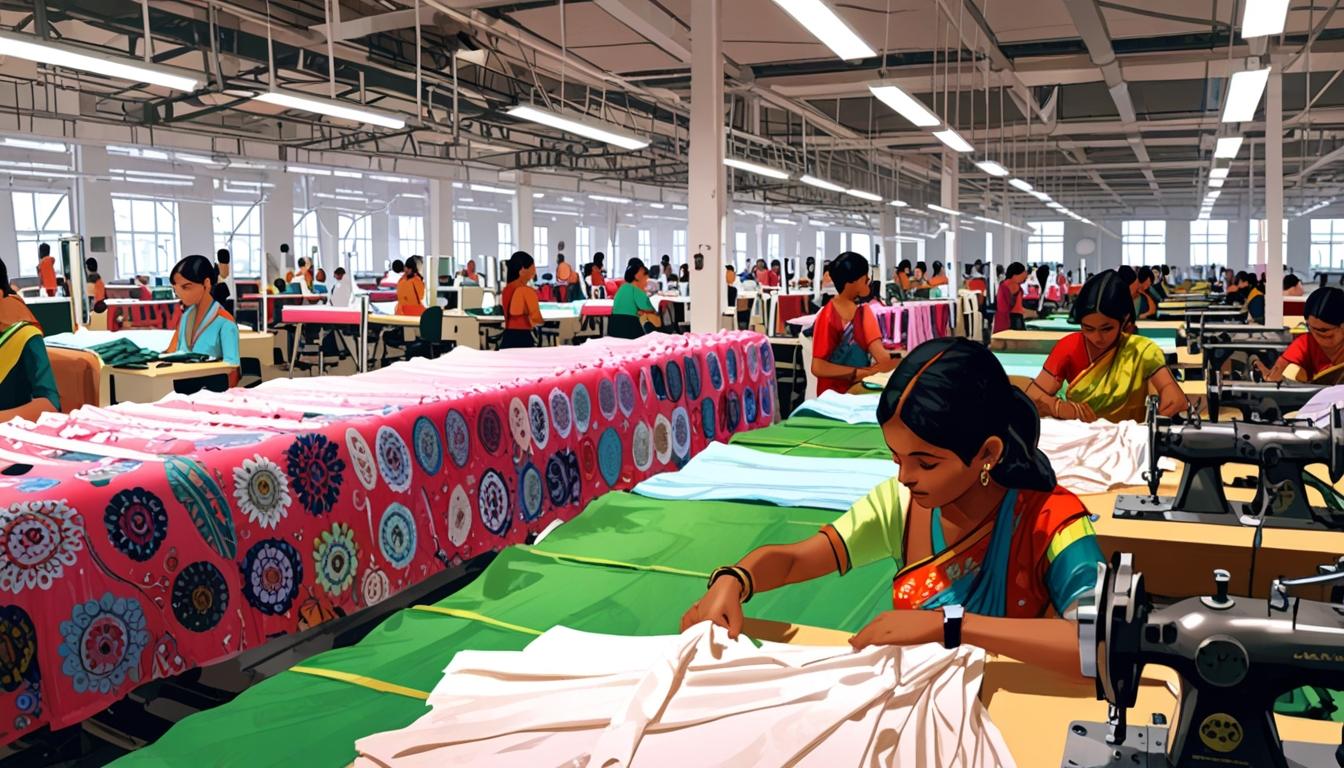Chinese fast fashion giant Shein is revisiting its global sourcing arrangements with India’s Reliance Retail amid changing geopolitical tensions and trade directives, potentially scaling down its manufacturing plans in India as China encourages domestic production retention.
Chinese fast fashion giant Shein is reportedly in the process of renegotiating its global sourcing partnership with India’s Reliance Retail, potentially scaling down the arrangement amid evolving geopolitical and trade dynamics. Sources directly familiar with the development told ET Brand Equity that Beijing’s recent stance discouraging local companies from relocating manufacturing operations overseas is influencing Shein’s reassessment of its plans.
Originally, the strategic collaboration between Reliance Retail and Shein aimed to establish India as a major manufacturing hub to support Shein’s global supply chain. One executive familiar with the discussions explained, “A core objective of the Reliance Retail-Shein partnership was to establish India as a manufacturing hub for Shein’s global operations. But with the Chinese government dissuading manufacturers from leaving the country after the new US tariffs were announced, the original arrangement is being discussed and revised again amid the diplomatic tangle, and may pare down Shein’s global sourcing plans from Reliance.”
The backdrop to these changes includes a significant tariff increase imposed by the Trump administration on Chinese-made goods, reaching a steep 145%, which raised concerns within China that manufacturers might shift production to countries with lower tariff barriers, such as India. Furthermore, the United States recently decided to pause its ‘reciprocal’ tariffs, including a 26% duty on India, for a 90-day period.
While other multinational companies, including Apple, have begun diversifying their supply chains by moving some production out of China to India, Chinese smartphone brands such as Oppo, Vivo, and Realme continue to manufacture primarily in China, even as they produce some devices locally for the Indian market. Shein, although headquartered in Singapore, derives most of its manufacturing from China and has been actively pursuing efforts to lessen this dependence. “Shein has been wanting to reduce dependence on China and was particularly keen on scaling up sourcing from India,” noted a second executive with knowledge of the negotiations.
The recent restructuring talks between Shein and Reliance Retail come shortly after Shein’s re-entry into the Indian market in February, following a five-year hiatus during which the platform was banned amid heightened geopolitical tensions and a crackdown on Chinese apps by the Indian government. Reliance Retail Ventures now operates a dedicated Shein app within India. The partnership between the two entities was designed to extend well beyond retail sales; it included plans to create an export platform for thousands of Indian micro, small, and medium enterprises (MSMEs) in garment and textile manufacturing sectors.
Moreover, Shein committed to sharing technology and expertise with Reliance to enable around 25,000 MSMEs to become integrated into a parallel global supply chain originating in India. However, these ambitious plans now face uncertainty amid the evolving international trade landscape and the Chinese government’s directive to retain manufacturing domestically. According to another source involved in the discussions, “the two companies are trying to find a workaround to the latest directive from Chinese authorities.”
In response to questions about data security and digital infrastructure integration, the Indian commerce and industry minister, Piyush Goyal, stated in a written reply to the Lok Sabha in January, “At all times, an indigenous retail platform for Shein would be hosted on infrastructure with Shein having no access to, or rights over, data.” The minister also highlighted that Reliance Retail Ventures had signed a technology agreement with Roadget Business Pte Ltd to develop a homegrown ecommerce platform aimed at connecting local manufacturers and suppliers to produce and sell products under the Shein brand.
Despite facing these supply chain challenges, Shein remains a significant player in global fast fashion. International media reports indicate that the company’s net profit declined nearly 40% year-on-year to $1 billion in 2024, although full-year sales still increased by 19% to $38 billion. Shein operates in over 150 countries and claims an audience of more than 250 million followers across social media platforms.
India’s fast fashion industry is itself experiencing rapid growth. A report by Redseer Strategy Consultants projected that the market is expected to expand from approximately $10 billion in fiscal year 2023-24 to $50 billion by 2030-31. The report noted, “Despite a sluggish consumption landscape, India’s fast fashion defied the odds and emerged as a shining star in India’s retail market. While the overall fashion industry in India experienced a modest 6 percent year-over-year growth in FY24, fast fashion surged ahead with a 30-40 percent growth rate.” It further characterized the mid-value segment as “a hotbed for digital-first entrants” marked by low barriers to entry and dynamic consumer behavior fostering intense competition.
As geopolitical factors continue to influence manufacturing and trade policies, Shein and Reliance Retail appear poised to adjust their partnership to navigate the complexities of global sourcing, potentially reshaping India’s role in Shein’s supply chain strategy. The future direction of this partnership, and how it may impact the fast fashion landscape in both India and globally, remains under close observation.
Source: Noah Wire Services





Honestly, it makes me curious about how these moves affect the customer experience and product availability. I actually stumbled across some real user experiences over at https://shein.pissedconsumer.com/customer-service.html , and it’s kind of eye-opening to read through what people are saying — some love the deals, others have funny stories with shipping. Definitely worth checking if you’re into seeing the behind-the-scenes reality. It kind of gives you a sense of how the business side trickles down to what we actually see online. Super fascinating to follow this whole situation unfold!
Wow, it makes me curious about how these moves affect the customer experience and product availability. I actually stumbled across some real user experiences over at https://shein.pissedconsumer.com/customer-service.html , and it’s kind of eye-opening to read through what people are saying — some love the deals, others have funny stories with shipping. Definitely worth checking if you’re into seeing the behind-the-scenes reality. It kind of gives you a sense of how the business side trickles down to what we actually see online. Super fascinating to follow this whole situation unfold!